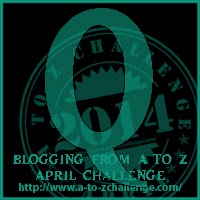Stopping by for the first time for the A-Z Challenge? Read a short intro to the A-Zs of Worldbuilding here!

Q is for Queens, obviously, but this was the best way I could think of to deal with the topic of government in worldbuilding while still fitting in the other subjects with the best letters possible. The A-Z Challenge is, at the very least, an exercise in creativity!
Most fantasy writers deal with monarchies as their governments of choice, and a lot of science fiction veers toward a totalitarian government, or a democratic government, depending on whether or not it is dystopian fiction. (Though I don’t read a lot of sci-fi, so don’t take this completely at my own word, okay? It’s just what I’ve observed in the sci-fi I have read.)
Most times, a government is founded to be of benefit to its citizens. Occasionally, a government is founded simply in the pursuit of power by an individual or group. It is very rare for there to be a gathering of people – let alone an established country – that has no infrastructure of authority and power. Most people want a leader, and there is usually someone willing to step up for the position, whether their intentions are honorable or not.
So, first: Is there an established government?
If not, is the society in a state of anarchy? Or are there small, local governments?
These small local governments can be a council, a specific family, a group of elders… even a mayor.
How long has the government been established?
How was the government established?
What type of government is in place?
Monarchy
One person holds the power, essentially. There are absolute monarchies, and limited monarchies, but a monarchy is usually passed down through heirs.
Oligarchy
A few people hold power, usually a group of people with some privilege (i.e.: sway with other people, wealth, etc).
Theocracy
The head of the government, usually a monarch but not always, is a divine being.
Plutocracy
The government is run by the wealthy. Money = power.
Republic
A government that has elected representatives chosen by its citizens, and does not have a head of state who has inherited that position by birthright.
Democracy
A government where power is exercised by the people, usually through votes. They may or may not have elected representatives. Majority rules.
There are, of course, more types of government than these. Do some research on your own, too. 😉
What purpose does the government serve for your plot?
Speculative fiction often has political undertones (or overtones). The political side of things is always the invisible side when it comes to war, and history, at least while those events are actually happening. So much happens behind the closed doors of those in power.
Make sure, when you put a war or a battle into your story, that you’ve poked through the politicians to find out why.
How does the government affect daily life?
How much power do they have – whether power given by the citizens, or taken by force – to affect daily life?
Does the government concern itself with nuances, or just with making sure the important things happen? What do they deem to be nuances and ‘important things’?
Most importantly, how does it affect the daily lives of your main characters?
In Conclusion…
Government is a powerful plot tool, but it can be complicated, so establish your ground rules ahead of time. Nothing sucks more than realizing the government is involved in a situation with the plot, and you have to stop everything to figure out exactly HOW they’re involved and what their authority is.
Original image used in header is by softies.
My intention is to turn the A-Zs of Worldbuilding into a workbook after the Challenge is finished. If you’d like to stay notified about that, you can subscribe to my newsletter here. Please make sure and select the A-Zs of Worldbuilding option!

Sophie Duncan
April 19, 2014 - 3:17 am ·I have queens in my theme today too 🙂 mine are all dead, though! Government can be a real motivator to plot – it can be something to rally against, a looming figure in the background, or beneficial to protagonists – as long as government isn’t everything, (i.e. the story’s a political thriller, which is not a favourite of mine), then I’m all for making sure it stands up to scrutiny in any book.
Sophie
Sophie’s Thoughts & Fumbles – A to Z Ghosts
Fantasy Boys XXX – A to Z Drabblerotic
Rebekah Loper
April 19, 2014 - 8:56 pm ·Dead queens are still awesome!
Political thrillers aren’t for everyone. I like stories with a political plot at times, but I don’t like the plot to ONLY be political, if that makes sense? It needs to be a seasoning, not the whole entree ;).
Stepheny Houghtlin
April 19, 2014 - 5:08 pm ·Visiting on the 19th day of the #Challenge. You have set yourself a large task. Interesting topic. Congratulation. If you have time or interest, I’m writing about gardening and related topics this month. Visit if you can.
Rebekah Loper
April 19, 2014 - 8:57 pm ·Thanks for stopping by, Stepheny!
Patricia Lynne (@plynne_writes)
April 19, 2014 - 7:25 pm ·Reading this makes me wonder if this info could be applied to say small groups that have a hierarchy. It’s not exactly a big government, but it is similar. (Am I making sense? Because I’m not sure I am. LOL)
Rebekah Loper
April 19, 2014 - 9:02 pm ·It absolutely could! No matter the size of the established governing authority, a lot of the dynamics are still going to be the same. In the case of a localized heirarchy, there’s probably going to be a lot more day-to-day meddling, and they’ll be less concerned with, say, trade agreements with other countries, but yes, a lot of this same info will still apply.